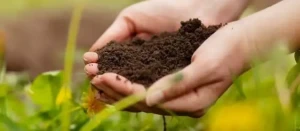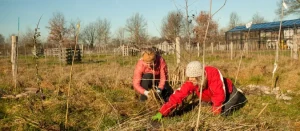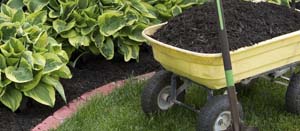SEARCH RESULTS > ARTICLES > Carbon
As gardeners, we understand that healthy soil is the cornerstone of successful gardening. Regenerative gardening practices not only enhance soil fertility but also contribute to overall ecosystem health. By nurturing the soil, we can cultivate thriving gardens while minimizing environmental impact. Here are 10 regenerative gardening tips to help you boost soil health and vitality. Learn More
In the face of escalating climate change and environmental degradation, the urgency to adopt sustainable practices has never been more critical. Permaculture, a design system rooted in principles of sustainability, offers a promising pathway towards mitigating the adverse effects of climate change (people and companies destroying nature) and restoring ecological balance. Learn More
Delving into the psychological aspects of permaculture, this article explores how gardening and working with the land can have profound positive effects on mental health and well-being. It discusses the therapeutic benefits of spending time in nature, cultivating mindfulness, and fostering a deeper connection to the environment through permaculture practices. Learn More
Benefits of Worms in Soil. Worms are invaluable to gardeners for various reasons. They enhance soil structure, increase nutrient availability, and promote microbial activity. One of their lesser-known benefits is their role in regulating soil pH. Learn More
Gardening is not just about growing beautiful flowers or tasty vegetables; it's about creating a sustainable and harmonious ecosystem. Regenerative gardening practices aim to restore and enhance the health of the environment, soil, and biodiversity. In this article, we will explore various regenerative gardening techniques that empower gardeners to contribute positively to the planet. Learn More
Edible forest gardens, rooted in the principles of permaculture, offer a sustainable and regenerative approach to gardening that mimics the structure and function of natural ecosystems. These gardens are designed to be not only beautiful but also productive, providing a diverse range of edible plants while enhancing ecological balance. In this article, we explore the concept of edible forest gardens and delve into the permaculture practices that make them flourish. Learn More
A lush, vibrant garden begins with healthy soil. No matter how green your thumb may be, the quality of your soil plays a pivotal role in the success of your garden. To create a thriving garden, you need to build a solid foundation, and that foundation is healthy soil. One of the most effective ways to improve and maintain soil health is through composting. In this article, we'll explore the importance of soil health and delve into the world of composting, showing you how to transform your garden's foundation into a haven for your plant Learn More
The microbiome in your garden soil refers to the diverse community of microorganisms that inhabit the soil. These microorganisms play a crucial role in maintaining soil health, nutrient cycling, and plant growth. The soil microbiome consists of various organisms, including bacteria, fungi, archaea, viruses, and microfauna (such as nematodes and protozoa). Here are some key points about the microbiome in garden soil. Learn More







